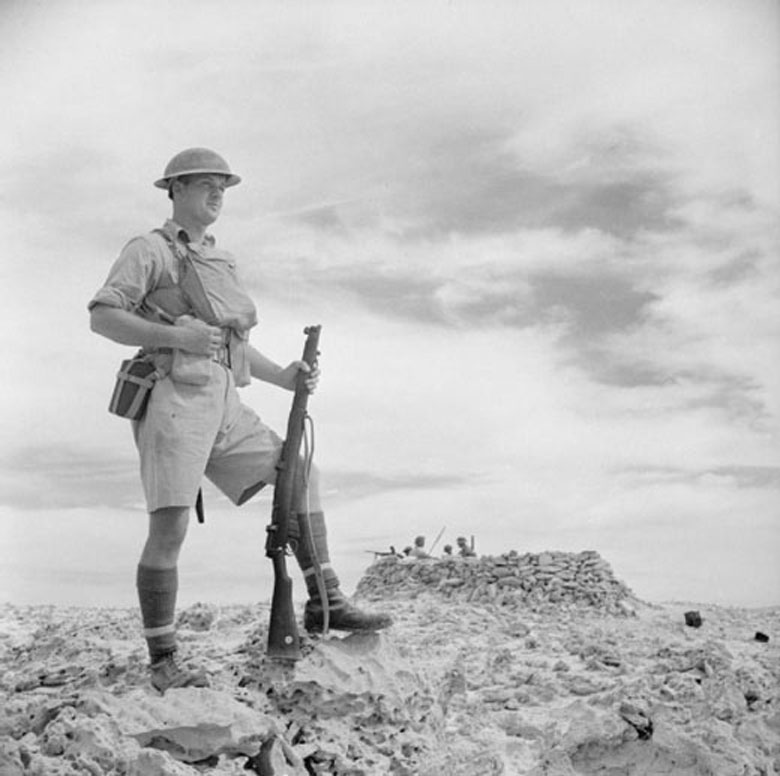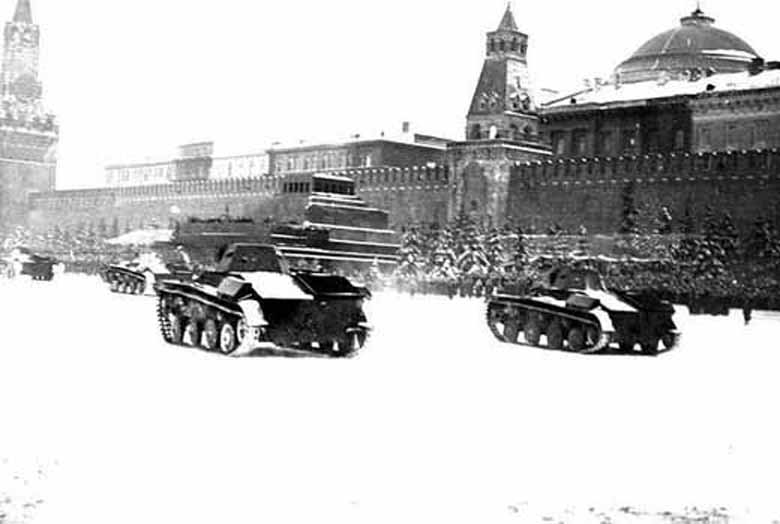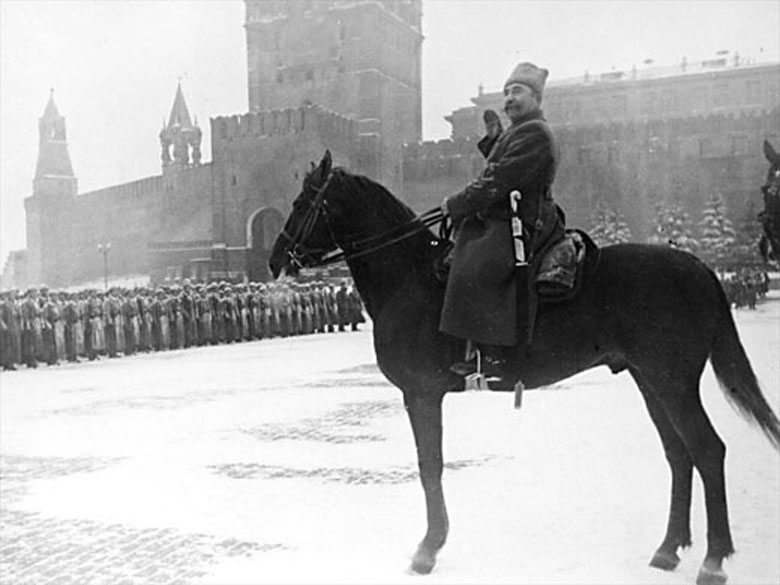Air Operations, Europe
- There is a heavy air raid on the Italian port of Brindisi.
- In their heaviest night raid of the war, the RAF send 300 bombers to Berlin (169, 21 lost), Cologne and Mannheim. 37 planes are lost due mainly to unusually adverse weather conditions.
On Watch at a Lookout Post |
 |
Eastern Front
The ground begins to freeze in the central sector. The Germans will no longer be held up by the mud and they begin to resume their offensive agains Moscow, but the weather will soon again be a factor.
In the northern sector Russian defenders stall the Finnish offensive.
NORTHERN SECTORAs the German XXXIX Panzer Corps moves upon Tikhvin, the Luftwaffe launches a number of heavy air raids on Leningrad. The Soviet situation is becoming untenable as their efforts to halt the German salient pressing toward the Svir fails. Reinforcements are urgently airlifted to the crumbling Tikhvin sector to bolster the 4th Army.
CENTRAL SECTORArmy Group Center begins to redeploy for the next phase of Operation TYPHOON. The 3rd Panzer Group takes up new positions between the 9th Army and the 4tn Panzer Group, aiming to strike directly toward Moscow and envelop the city from the north.
The continuing drop in the temperature sees winter take an early hold, causing the first cases of frostbite among the ill-equipped German units. Most men are still wearing summer tunics and no supplies of winter uniforms exist to the rear. Only the Luftwaffe has made provisions for operating in the winter, and the infantry has to endure the worst winter in living memory virtually without protection.
SOUTHERN SECTORThe 1st Panzer Army forces the 9th Army back 20 miles along the road to Rostov. The weight of the German attack is then switched south, bringing pressure to bear upon the 56th Independent Army. Rundstedt aims to penetrate directly into Rostov rather than enveloping the city from the northwest.
[Germany, Policy
Since the US has decided to arm their merchant ships the German government announces that U-boats will be ordered to torpedo all armed ships.
[Japan, Planning
Japan issues Combined Fleet Order No 1. This sends the 1st Air Fleet to attack Pearl Harbor, the 2nd Fleet to invade the Philippines, Malaya, and the East Indies; the 4th Fleet to attack Guam; and the main fleet to guard Japanese waters.
Japanese command informs the naval units that December 7 has been set for the planned Pearl Harbor attack.
[Soviet Union, Home Front
Stalin speaks to troops in Red Square. He says that while the German reserves are exhausted, those of the Russians are only just beginning to make their weight felt. The appeals to patriotism and the sacred union of Russians against the invader do not please all Party 'puritans', but they are necessary and effective.
|
|
On the anniversary of the October Revolution, Stalin makes a speech in Moscow's Red Square predicting a German disaster. Among the gross distortions and lies, Stalin makes an accurate assessment of Operation TYPHOON: 'The German invaders are straining their last forces. There is no doubt that German cannot keep up such an effort for any long time.
[United States, Policy
- The 'Lend-Lease' Act is extended to the Soviet Union although aid has been going to Russia since September.
- Secretary of State Hull informs the US cabinet that a critical stage has been reached in the country's relations with Japan. American military leaders need to assume that the Pacific will constitute a combat area.

